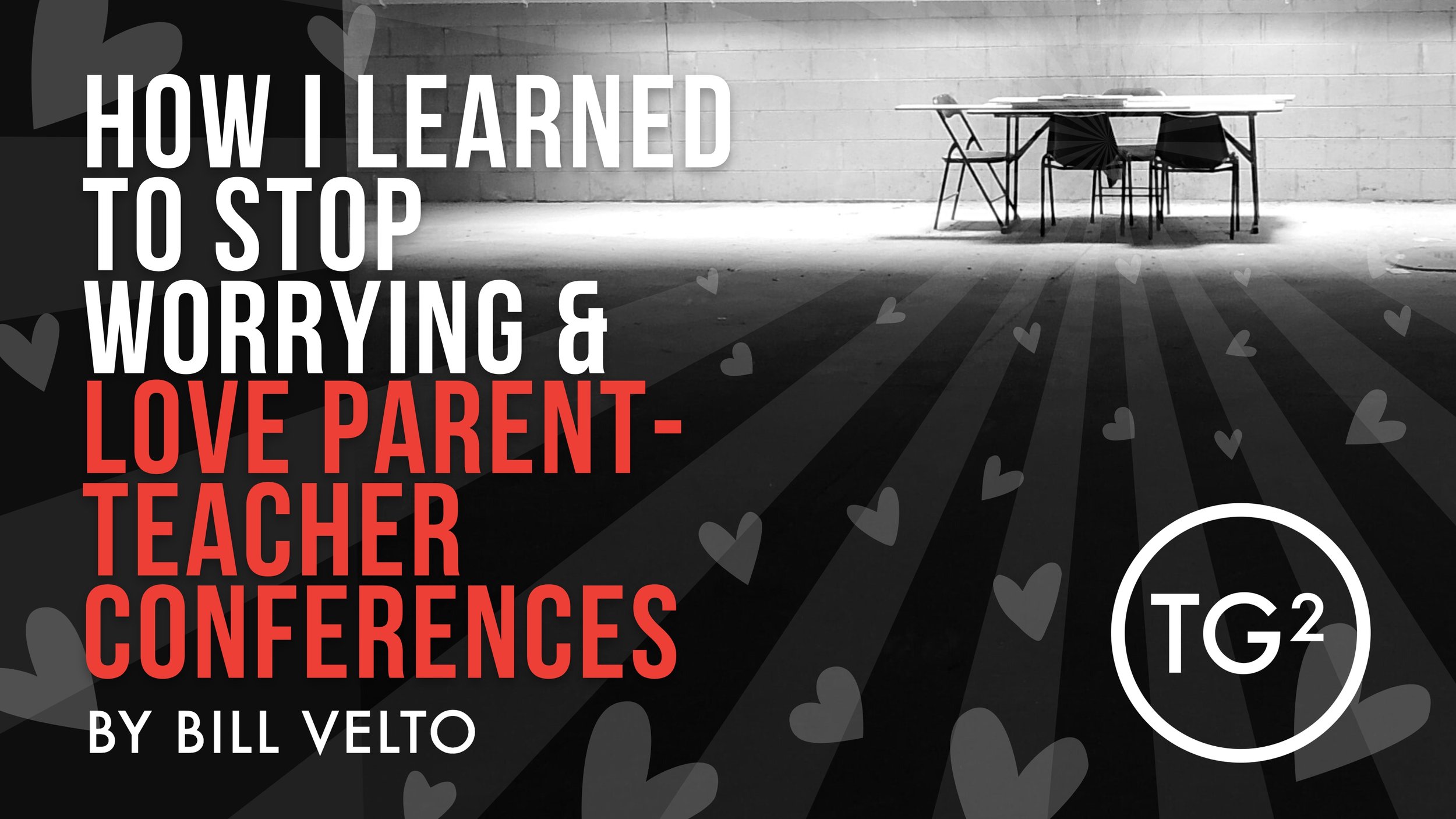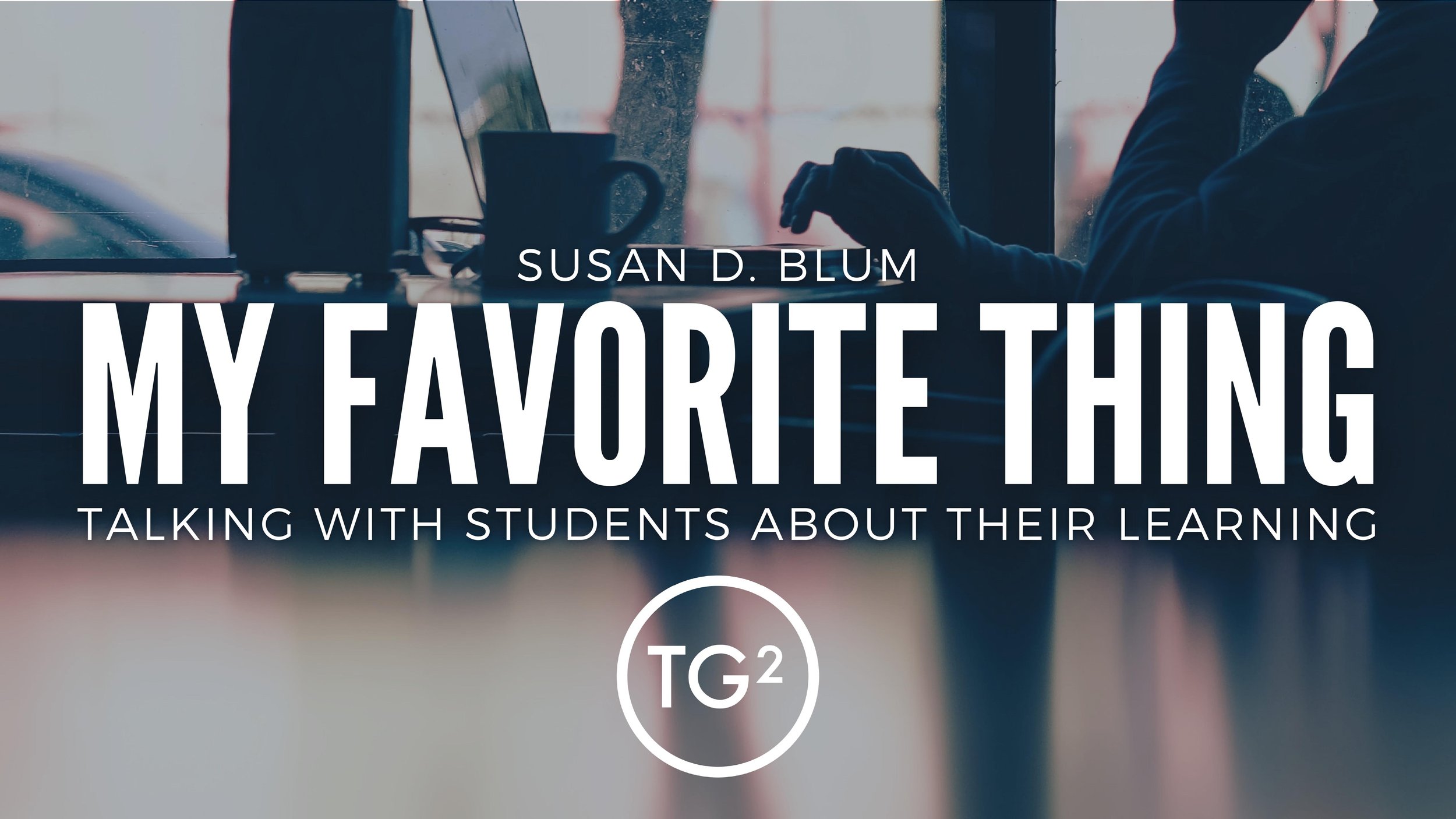Deeper Learning with Student Portfolios and Conferences
One of the hardest things for students to develop are the skills of thinking about their thinking and learning about how they learn. High school Spanish teacher, Rhonda Higgins, shows how a system of portfolios, reflection, and student-led conferences not only allows students to grasp the content but also to practice and develop these metacognitive mindsets.
Does Going Gradeless Work?
For Rhonda Higgins, going gradeless has been a journey. From learning about the impact of a zero on a 100-point scale to implementing student-led grading conferences, Rhonda now shares with others how they can reclaim their time by giving students more accountability of their learning. “Teachers should not own 100% of the assessment process,” she writes. “By grading less, students share in the responsibility.”
How I Learned to Stop Worrying and Love Parent-Teacher Conferences
Bill Velto recounts how, in shifting toward a gradeless environment, students grew in their ability to articulate their learning, and how that learning related to their grade. Conferences came to resemble discussions around the dining table, rather than the combative confrontations that had occurred in the past.
Getting Students Ready For Portfolio Conferences
Learning shouldn't leave the learner out. Empowering students to share their learning through portfolio conferences shifts the dynamic of who's responsible for the learning and highlights what students know and can do rather than on grades and scores.
How Portfolios and Conferences Transformed My AP Science Classroom
Putting agency over one’s grades into the hands of learners allows them to exercise metacognitive skills. When students learn to self-assess accurately, it enables them to transfer skills and understanding well beyond the classroom.
Capturing Learning as it Happens
Creating and maintaining portfolio evidence as the learning happens results in richer, more nuanced representations of learning over time. When students and teachers capture learning as it happens, it is no longer an add-on reporting method after a performance task is completed.
My Favorite Thing: Talking to Students About Their Learning
Susan D. Blum, editor of the book Ungrading: Why Rating Students Undermines Learning (and What to Do Instead), shares how she uses conferences to consult learners in their full humanity (as much as they choose to share it), to learn about their learning and what it means in their lives.
Student-led Conferences: The Key to Going Gradeless
With student-led conferences, families hear how students are progressing, more than any number or letter could tell them. Families become a part of the process, learning about their child’s interests and passions. Learning extends beyond the walls of the classroom.
Measure and Manage What You Value
Everything in Mike McAteer’s class begins with the end in mind. But instead of focusing on the endpoint of a summative assessment, he asks the question: What do I want to read in my students’ reflections?
A High School Spanish Teacher’s Journey from Traditional Grades
After a school-wide discussion on assessment practices, Rhonda Higgins found herself wondering: could this be an opportunity to shift the mindset of students from getting a good grade to learning the Spanish language?
Learning Journeys: Communicating Progress in the Gradeless Classroom
Rachael Kettner-Thompson explains how she uses a Google Forms add-on to help students communicate a treasure trove of learning, providing timely information for parents and helpful feedback for teachers to improve their practice.
Not Yet Gradeless, But Grading Less
Many teachers are not in a position to go entirely gradeless, but there are still ways to “grow beyond grades.” Economics teacher Vanessa Ellis shares how she has shifted the focus toward feedback and growth, despite having to still enter grades.












